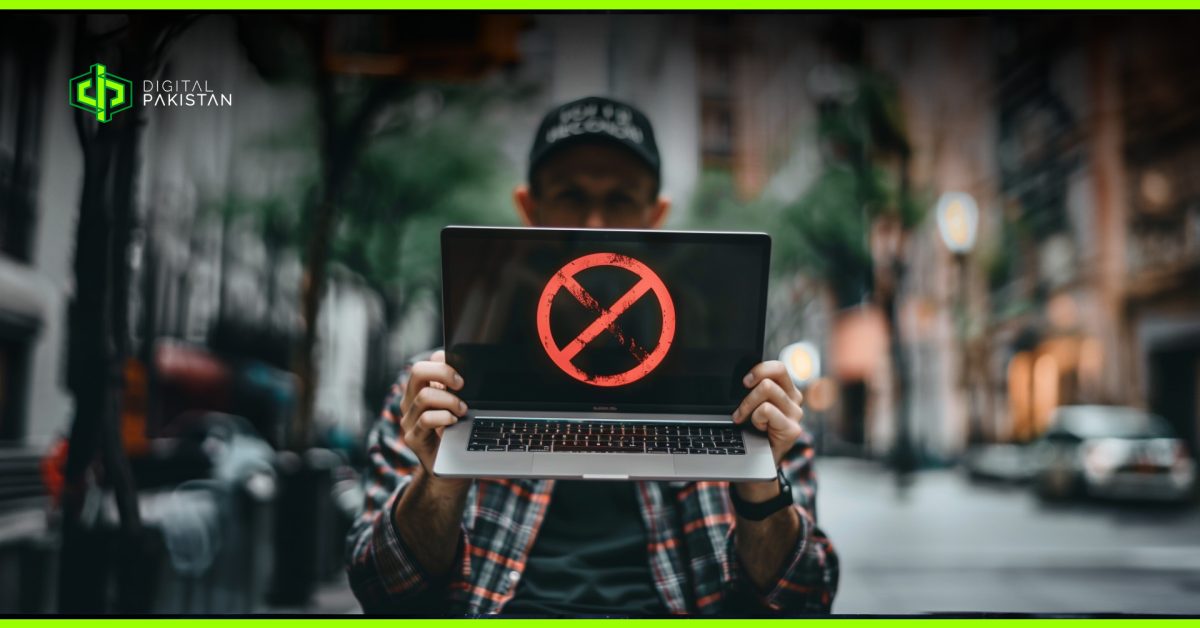
Last Week in Science: 4th to 10th March, 2024
March 13, 2024
Twitter Takeover: Elon Musk’s Billion-Dollar Bet
March 16, 2024Where Listen Cannot Speak louder than Words
In the heart of South Asia, a digital drama unfolds in Pakistan. The protagonist is the common citizen, seeking to exercise their right to information and freedom of expression. The antagonist, a rising tide of digital authoritarianism, seeks to control the narrative, wielding the power of surveillance and censorship.
Following the detention of the ex-Prime Minister, the government, in an effort to suppress opposition, disconnected mobile Internet services and blocked access to several social media platforms. The effects were immediate and widespread, with traffic levels decreasing by nearly 30% and the volume of requests from mobile devices dropping by 60%. This had a profound impact on the gig economy, as freelancers and gig workers found their work disrupted. The disconnection of mobile internet in Pakistan had significant consequences, especially for gig workers who depend on platforms like Careem and Foodpanda for their income. Without internet access, these workers couldn’t accept orders or find their way to their destinations, which affected their daily earnings. Furthermore, the disruption of mobile internet impacted digital payment systems, leading to a significant decrease in transactions and creating difficulties for businesses that rely on POS machines. Telecom operators reported significant losses, and the government also experienced a decrease in tax revenue. The situation underscored the importance of mobile internet as a vital resource in emergencies and for economic productivity, leading to criticism from industry leaders such as the CEO of Jazz, Aamir Ibrahim.
This disruption is not just a one-off event. It is part of a larger pattern of internet shutdowns and censorship in Pakistan. Over the years, the government has increasingly resorted to these tactics to control the narrative and suppress dissent. This has led to a chilling effect on freedom of expression and has raised serious concerns about the state of internet freedom in the country.
Moreover, the government’s decision to suspend mobile data services during the recent parliamentary elections raised concerns internationally. The U.S. Department of State expressed its concern about the restrictions, which were seen by many as an effort to prevent opposition voters from getting information or coordinating activities. Despite a High Court order and widespread international criticism, the social media platform X, formerly known as Twitter, remains largely inaccessible in Pakistan. The situation is further complicated by the potential impacts of a VPN ban on Pakistan’s IT sector. VPNs are often used as a workaround to bypass internet restrictions and access blocked websites. A ban on VPNs could therefore exacerbate the existing challenges faced by internet users in Pakistan. It could also have serious implications for the country’s burgeoning IT sector, which relies heavily on VPNs for secure and unrestricted internet access.
In the midst of escalating tensions, a glimmer of optimism surfaces. Non-governmental organizations and advocates for human rights, the unsung champions of this narrative, step up to the plate. They articulate concerns about data protection, privacy rules, and internet accessibility for underrepresented communities. Organizations such as the Digital Rights Foundation, Bytes for All, and Media Matters for Democracy are at the forefront of addressing issues like data protection, privacy rules, and internet access for marginalized communities. They also keep track of and document instances of online harassment, surveillance, and internet blackouts. They interact with a variety of stakeholders, including government officials, the judiciary, the media, and the general public, to advocate for and safeguard digital rights in the country. Their endeavors highlight the significance of preserving an open and unrestricted internet.
As the story continues to unfold, the topics of internet liberty, censorship, and privacy continue to dominate. The opposition from non-governmental organizations and the global community offers a glimmer of optimism. The unfolding story emphasizes the importance of all involved parties participating in productive discussions to ensure that the digital realm continues to serve as a stage for free speech and creativity, rather than a means of control and monitoring. The conclusion of this tale is still unwritten, but one fact remains evident – the battle for internet freedom in Pakistan continues unabated.
The struggle for internet freedom in Pakistan is a microcosm of the larger global struggle for digital rights. It is a reminder that the fight for a free and open internet is not just about technology, but about fundamental human rights. It is a fight that we must all join, for the sake of our shared digital future.
About the Author:
Nouman Ahmad Noor, your friendly Clinical Psychologist with big dreams! Juggling the art of unraveling minds, aspiring to craft captivating novels, and fueling the next generation of knowledge as a future professor. Join me on this exciting journey of understanding minds and weaving tales!






